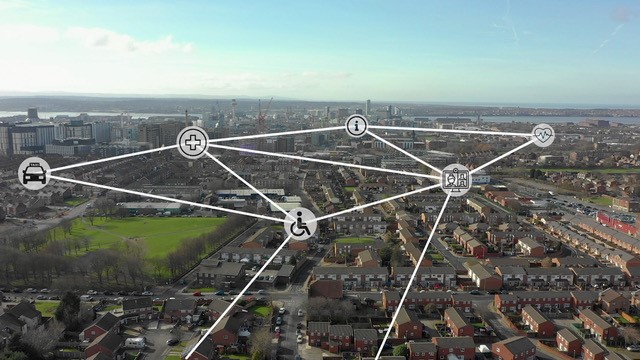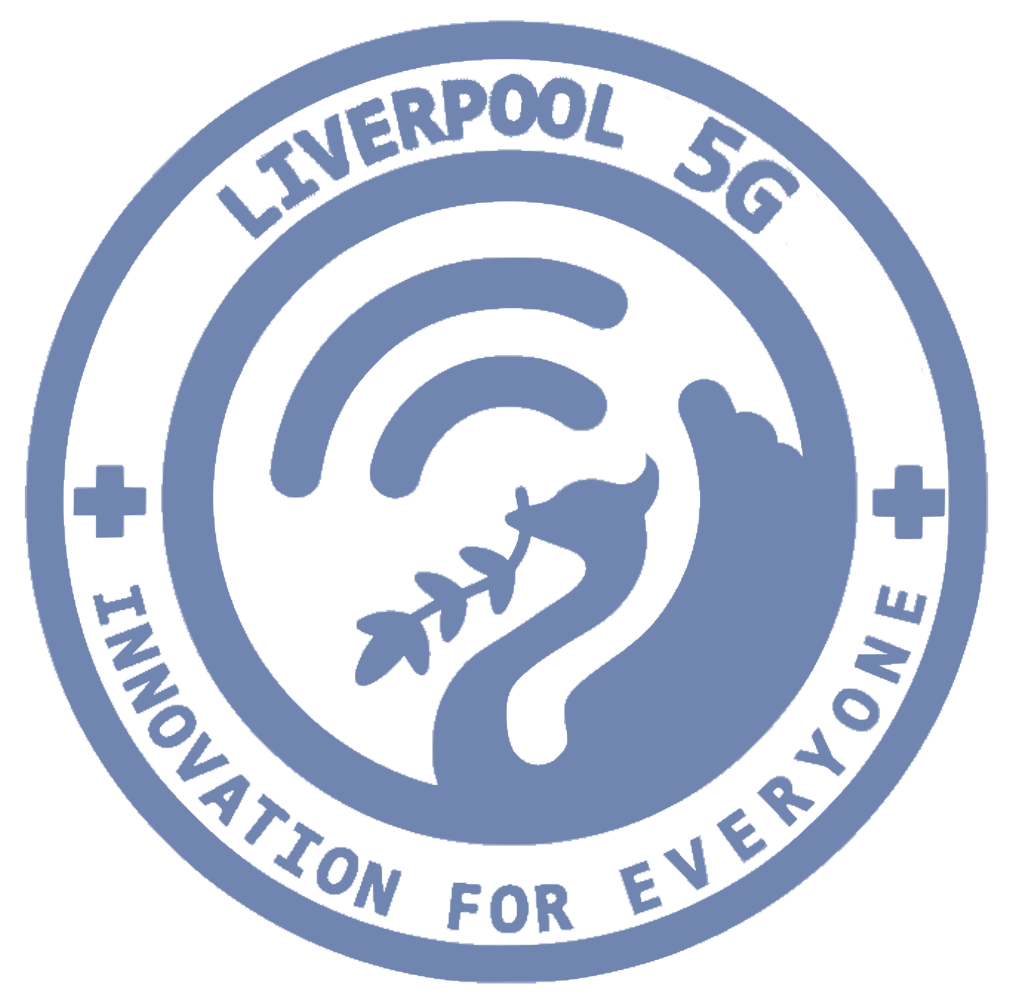Health & Social Care Testbed
Background
The Liverpool 5G Health and Social Care Testbed started in April 2018 as part of the DCMS 5G Testbeds and Trials Programme and the greater 5G strategy, and ran for 20 months.
The project, the first 5G supported health trial of its kind in Europe, was given £4.9 million to see if 5G technology provides measurable health and social care benefits in a digitally deprived neighbourhood. It is also part of the UK5G, national innovation network for the sector.
The project was delivered by the Liverpool 5G Consortium:
Click for full details of the project, its activities, technical details, benefits, impact and outcomes
Aims
Throughout the project, the consortium tried to address the following question:
“Can 5G connectivity be sufficiently cheap and effective in health and social care provision that it will be cost effective to give free access to those unable to afford either phone or broadband access?”
We knew that to answer this question we needed a series of technological solutions that care services could easily adopt and use.
Throughout the project we also focused on:
- Reducing the digital divide
- Providing affordable connectivity with the necessary level of service
- Creating capacity within social care services
- Improving efficiency in health and care services
- Improving people’s quality of life and reducing social isolation
Activities
 Over 20 months we mobilised 11 partners, over 15 subcontractors, social care providers, local citizens and wider stakeholders to take part in our project. We established a working 5G mmWave network, which supported health and social care products for 179 people in the community. Our partners spanned the full range of private, public and third sectors.
Over 20 months we mobilised 11 partners, over 15 subcontractors, social care providers, local citizens and wider stakeholders to take part in our project. We established a working 5G mmWave network, which supported health and social care products for 179 people in the community. Our partners spanned the full range of private, public and third sectors.
The Liverpool 5G Health and Social Testbed harnessed opportunities created by 5G mmWave technology and used them to address challenges currently facing health and social care services. A private 5G mesh network supports telehealth services in the Kensington area of Liverpool.
Achievements
From April 2018 to November 2019 the Liverpool 5G Testbed:
- Created a unique and innovative consortium of public sector health and social care suppliers, the NHS, university researchers, third sector organisations, agile local SMEs and a leading UK 5G technology vendor
- Created the largest 5G mmWave network in UK and second largest in the world, and deployed significant levels of IoT in people’s homes
- Demonstrated the potential for 5G networks to make positive impacts on societal health outcomes over the next 5 years
- Demonstrated that 5G mmWave enabled Health and Social Care services can reduce the cost of those services thereby creating extra capacity
- Demonstrated that 5G mmWave networks can be more cost effective than cellular connection, can be any size and shape, can readily deployed in areas of need, and can be deployed cost effectively
- Demonstrated that, through the use of licence free 5G mmWave networks, there exists a future for 5G that reduces, not increases, the digital divide and access to services
Key Impacts
We showed how 5G can effectively support new and existing technologies, enabling the use of innovative health and social care applications in the field more cost-effectively.
Analysis of the benefits and impact of the devices during the project trial demonstrated that using 5G supported health technologies can:
- Improve health outcomes for service users and increase ability to manage their own health
- Improve quality of life and reduce loneliness for service users
- Increase the capacity of health and social care services, by decreasing the need for social care services, primary health services and hospital services as a go-to first option
- Give an estimated potential cost saving to health and social care services of over £200k per 100 users per year (dependent on the technologies used)
